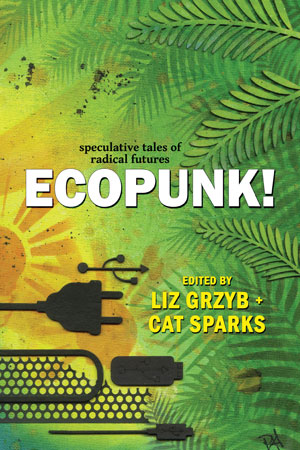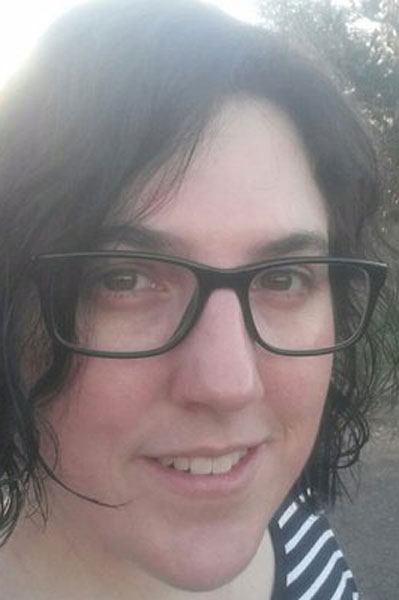

Over coming weeks we'll have a series of mini interviews ("minterviews" if you will) with some of the awesome writers in our forthcoming Ecopunk! (order it at http://bookshop.ticonderogapublications.com/product/ecopunk/)
Next up is Shauna O'Meara. Shauna is an Aurealis nominated writer based in Canberra, Australia. She was a winner of the 2014 Writers of the Future contest and a finalist in the 2016 Aurealis Awards and her short stories have appeared in Interzone, Cosmos magazine, Writers of the Future, Everything Change and several Australian anthologies including In Your Face, Next and The Never Never Land. She is on Twitter at @OMearaShauna and you can find her at theshaunacorner.wordpress.com
1. Tell us a little about your Ecopunk! story, and the inspiration behind it.
"Island Green" is a science experiment in the form of a televised gameshow whereby three teams of scientists compete to render productive the salinated land and depleted reef of a former resort island off the coast of Malaysia.
In this future, climate alteration has decreased worldwide land and sea productivity through a multitude of means, resulting in significant food shortage and the mass displacement of people. My story looks at restoring food production to damaged landscapes and proposes a range of production, environmental and societal factors that might be considered in a multicultural world where one solution may not fit all.
The idea was kindled by articles I read for another cli-fi project, that described the many ways in which climate change could negatively impact the productivity of fertile land (one of these being soil salination caused by sea-level rise and hurricane storm surge events). Loss of soil productivity is a topic close to my heart because of the place I grew up: wheatbelt Western Australia. Here, decades of clearing have resulted in such severe water table rise that salt now crystallises in dead, glittering lakes on land that was once an agricultural food-bowl. Millions are currently being spent trying to undo the salt damage as acres lie fallow and farmers are forced to walk off the land.
As for making the plot a gameshow: that was a by-product of my love for the ultimate island gameshow, Survivor.
2. What science fictional technology do you wish we had now?
While I love the concept of generation ships (and stargate wormholes and warp drives), I would prefer technologies targeted at the leaving of Earth to be just a bonus to our adventurous, outward seeking species rather than a necessity caused by our ruination of this world. As such, I wish progressive SF cities of the future were the cities of now with sustainable, clean power, upward growth instead of outward expansion, and full citywide integration of our food production practices in the form of towering vertical farms, meat labs and roof-top gardens. That way, human populations might be sustained and housed without encroachment, pollution and disruption of the natural world that is left.
3. With all these scary climate events happening at the moment, it's sometimes hard to see some light. What gives you the most hope for humanity and the world?
That there are still people out there doing research, often against the odds and, particularly in the case of climate change science, against a backdrop of political and corporate hostility: underfunded, time-consuming, results-not-guaranteed hard science, simply because they have a drive and a passion to know more, and to find solutions.
--
Ecopunk! - speculative tales of radical futures contains 19 optimistic tales, selected by two award-winning editors, showing how humanity can survive and flourish, despite the looming uncertainty from climate change. The incredible line-up includes some of Australia's best science fiction writers. Order it at http://bookshop.ticonderogapublications.com/product/ecopunk/